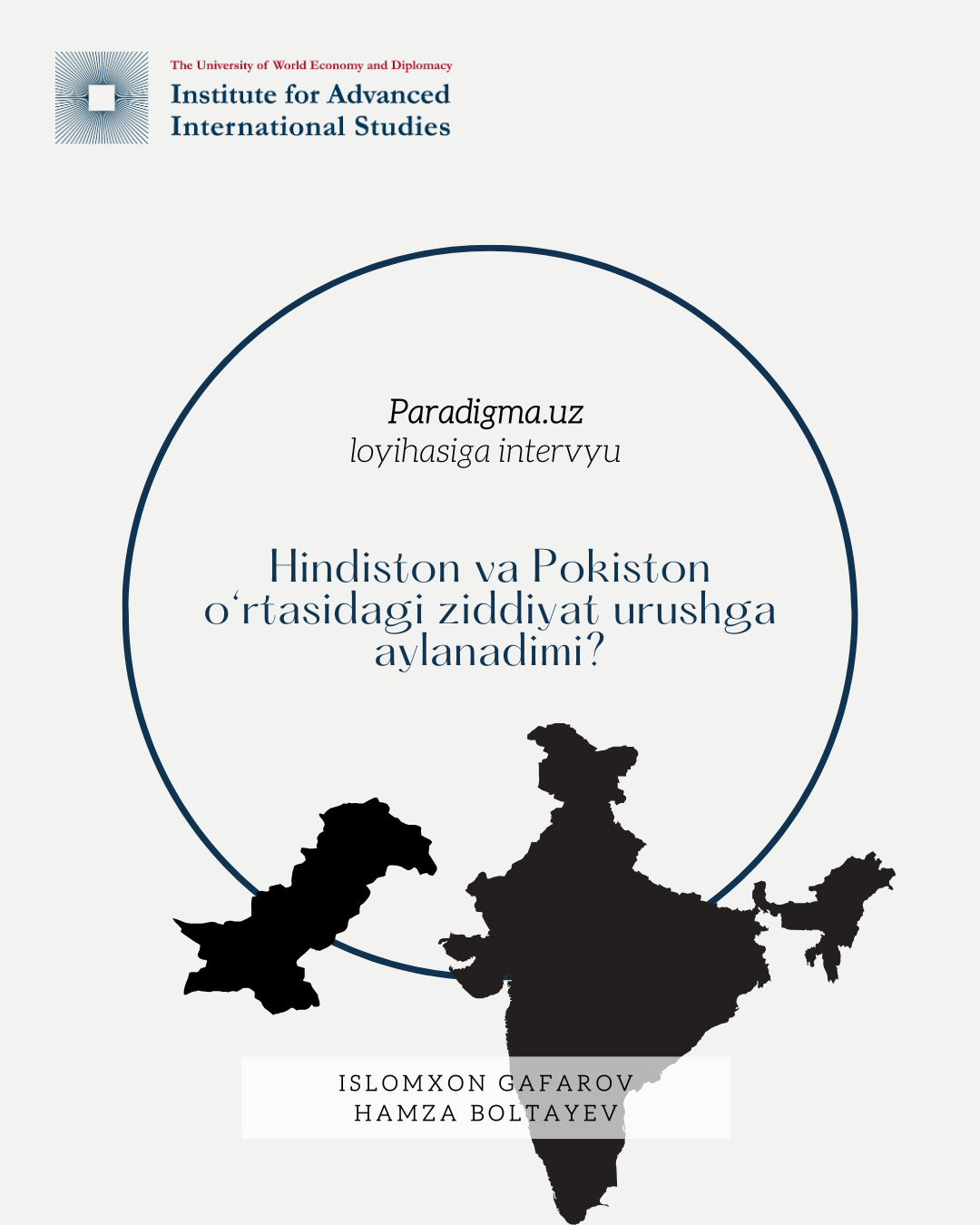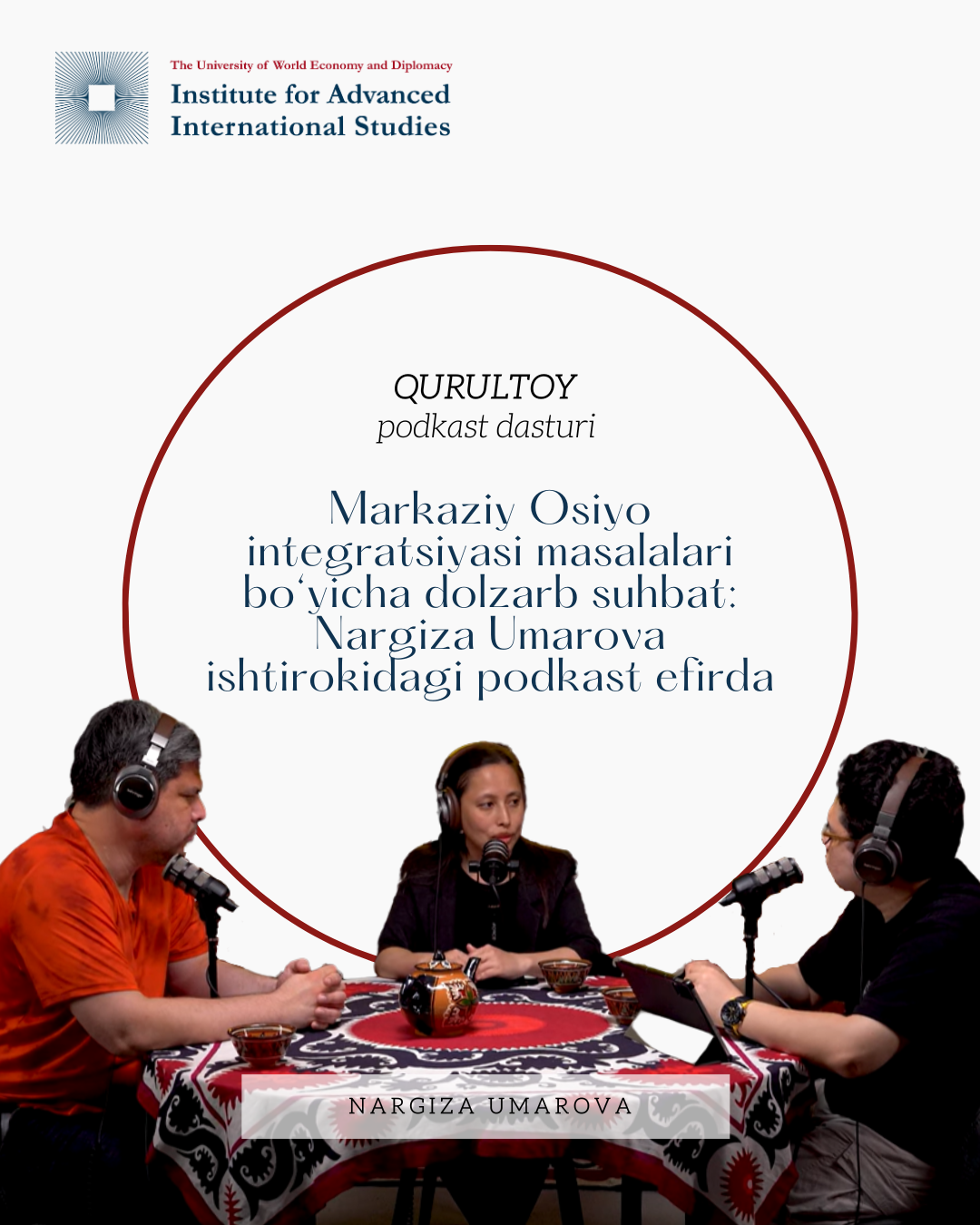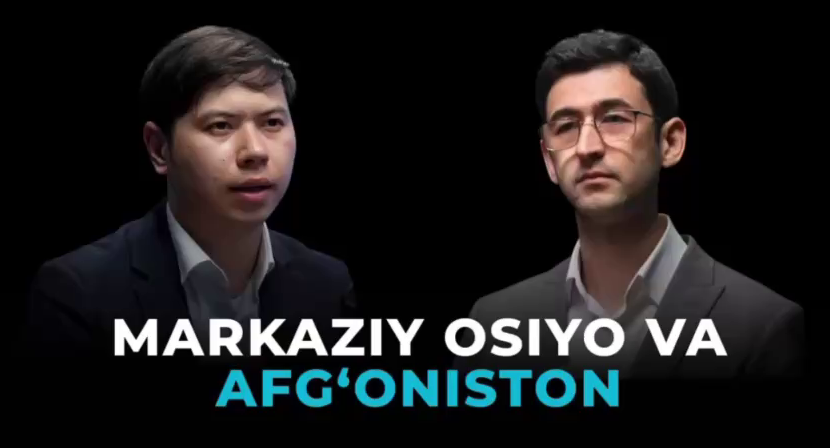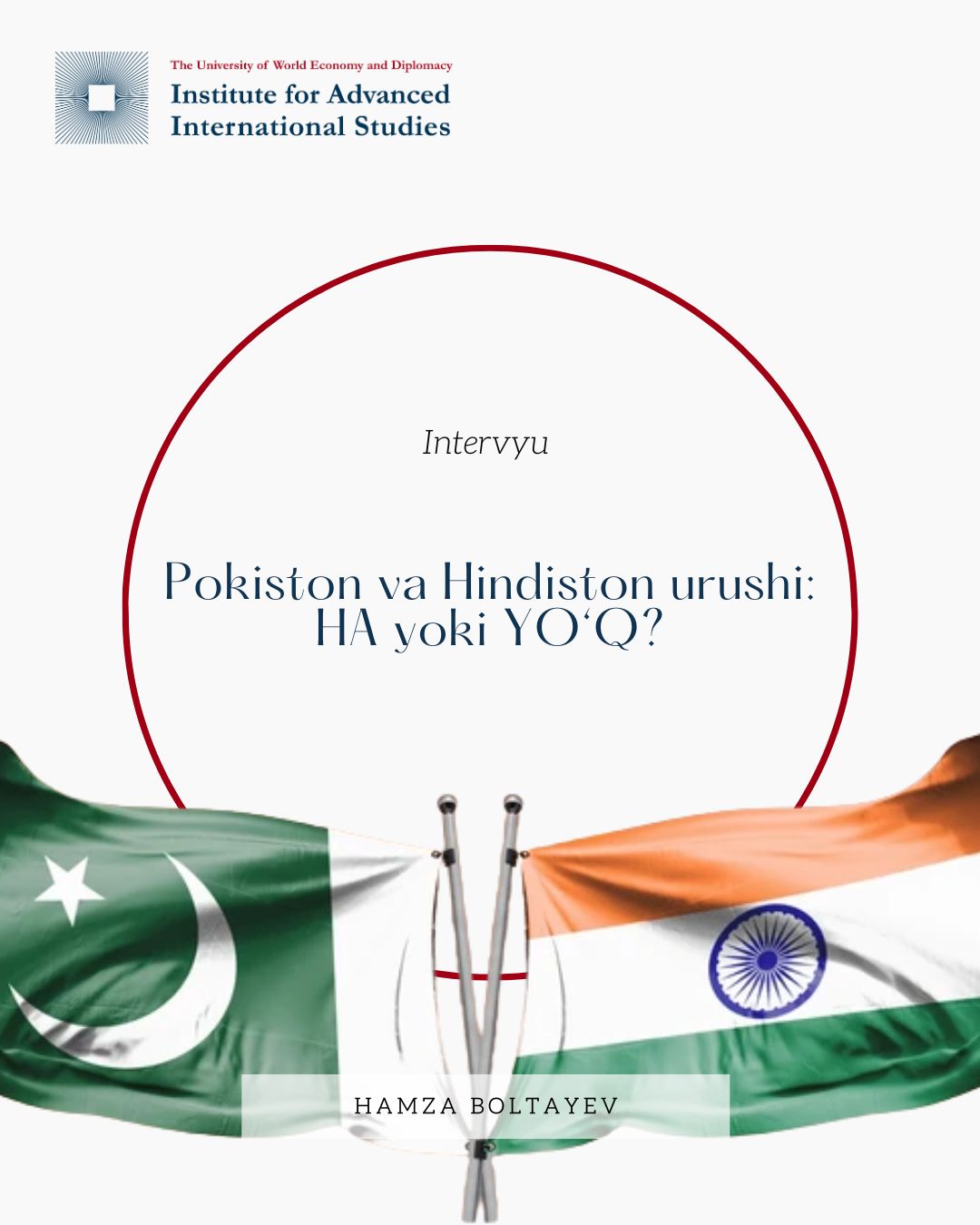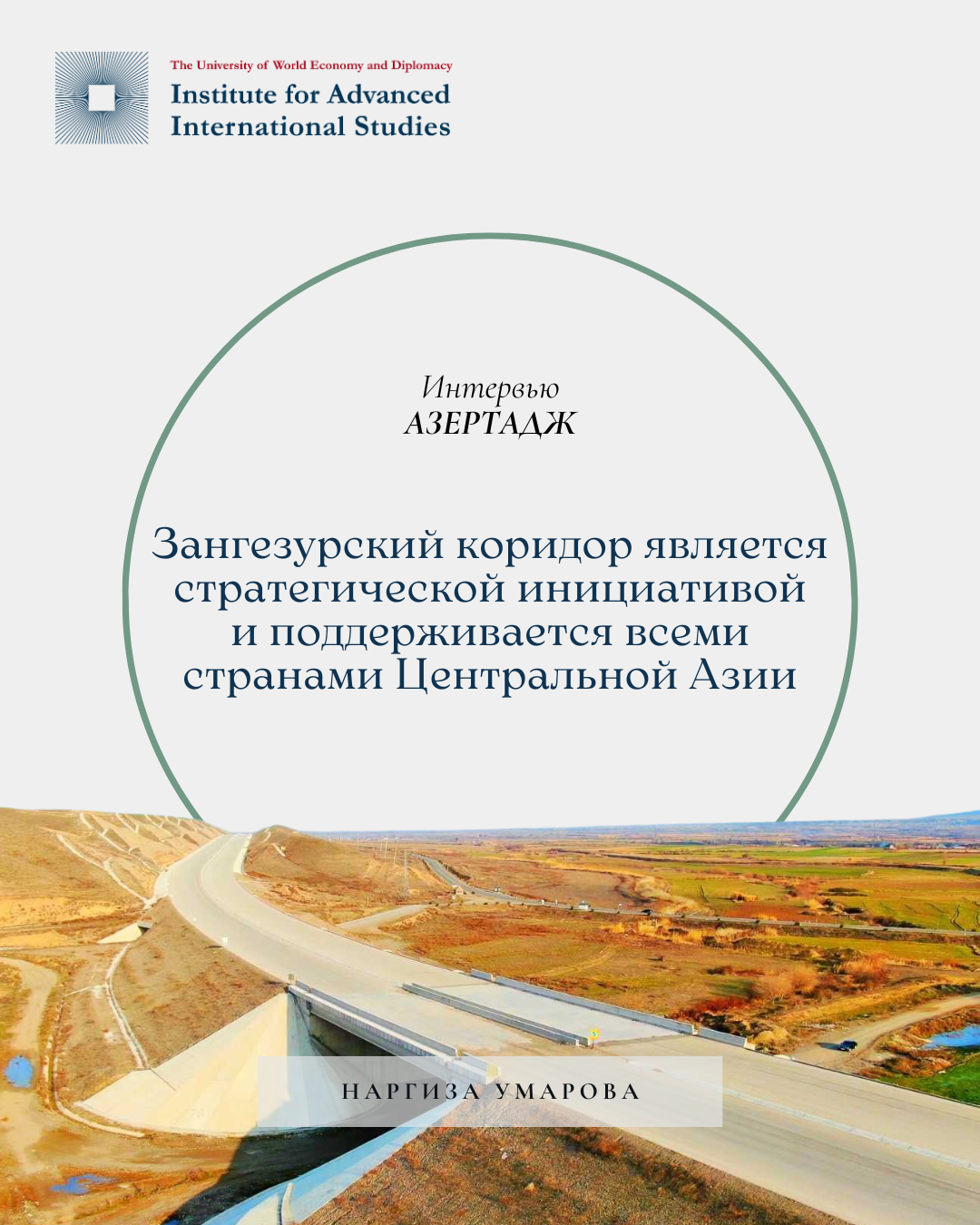In an interview devoted to an in-depth analysis of international relations and geopolitical threats, Hamza Boltaev, Head of the Centre for Afghanistan and South Asian Studies at IAIS, offered important insights into the sources of tension in the region. The interview also analysed the relevance of the Kashmir issue, Afghanistan's direct and indirect links to the process and the risks arising from the backdrop of tensions around Iran.
Hamza Boltaev emphasised that the historical contradictions between Pakistan and India, especially the Kashmir conflict, still upset the balance of security in Central and South Asia today. The fact that both sides possess nuclear weapons increases the risk of the conflict escalating into a direct military clash.
Particular attention was paid to China’s role in the region. China has for many years maintained a close strategic partnership with Pakistan, known as the ‘iron brotherhood’. These ties take the form of military-technical co-operation and diplomatic support. With India, on the other hand, China has a complex relationship, mainly in the context of border disputes, trade conflicts and competition for regional leadership. For this reason, China is close to Pakistan's position on the Kashmir issue and criticises India’s actions in the region. This directly affects the balance of geopolitical power in the region.
Geopolitical tensions around Iran were also emphasised in the interview. Deteriorating relations with the West, military clashes in the Middle East, as well as Tehran’s military potential may aggravate other conflicts in the region. According to the expert, the instability around Iran makes it necessary to consider the geopolitical balance for Pakistan and India. In particular, Pakistan’s neighbourhood with Iran makes it an indirect participant in these conflicts.
In the interview, Hamza Boltaev noted that the approach of major powers to this conflict and regional controversies is based on different interests, strategies and historical ties. This shows that any tension around Kashmir could turn into an arena of global geopolitical competition, not just regional.
* The Institute for Advanced International Studies (IAIS) does not take institutional positions on any issues; the views represented herein are those of the author(s) and do not necessarily reflect the views of the IAIS.

-Обложка.jpg)
